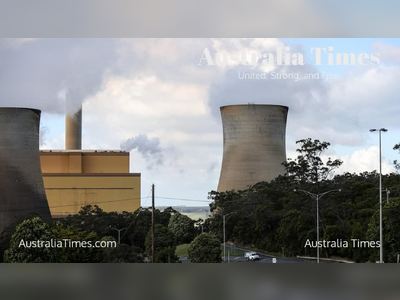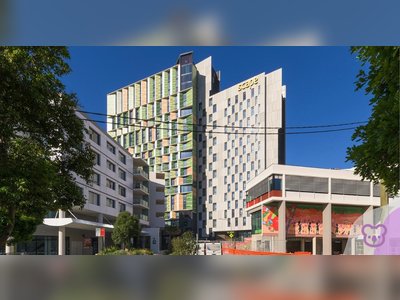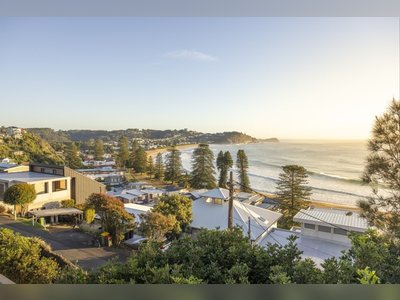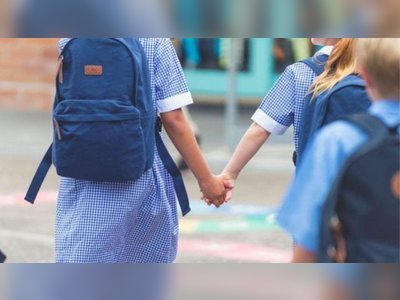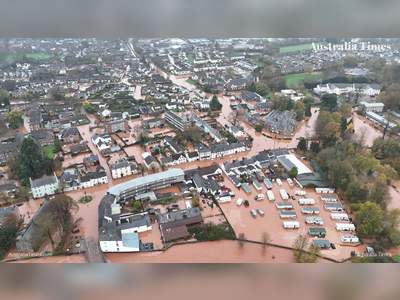
Nearly Seventy Schools in Canberra Region Shut Amid Asbestos in Children's Play Sand
Household and school use sand recalled after traces of asbestos found in coloured play products, prompting mass closures in the Australian Capital Territory
The Australian Capital Territory (ACT) government announced that 69 public schools will be closed on Monday following a voluntary recall of coloured play sand products by major retailers.
The recall, initiated by the Australian Competition & Consumer Commission (ACCC) after laboratory testing revealed traces of asbestos in samples, affects sand tubs sold under brands such as “Active Sandtub 14-piece Sand Castle Building Set” and “Blue, Green and Pink Magic Sand”.
The ACCC classifies the risk of airborne exposure as low.
The recall by major retailers follows earlier actions involving other children’s sand products sold by art-supply retailers and used in many schools and preschools.
Those earlier products were found to potentially contain tremolite-type asbestos and were sold nationwide between 2020 and 2025. In a Facebook post, ACT Education Minister Yvette Berry explained that although air test results in schools so far have returned negative for asbestos fibres, the closures are necessary to ensure the safety of students and staff while further inspections and remediation proceed.
In practical terms, school staff and State Emergency Service volunteers have over the weekend walked through school buildings in the region, mapping locations of coloured sand, and identifying where the recalled product has been used.
Ms Berry said that up to 23 schools may stay open on Monday because they either hold only minor stocks of the product or none at all.
The earliest recall notice by the ACCC lists the affected products as Kadink Sand (1.3 kg), Educational Colours – Rainbow Sand (1.3 kg), and Creatistics – Coloured Sand (1 kg).
The items were sold at retailers including Officeworks, Educating Kids, Modern Teaching Aids and Zart Art. The regulator emphasised that while asbestos is detected, respirable fibres were not found and there is no immediate need for clinical assessment for those exposed.
At the ACT schools being closed, the precautionary approach is aimed at enabling contractors licensed to handle asbestos to test, remove, and clear any contaminated or potentially contaminated sand zones.
Ms Berry said the process “could take days”.
Across Australia, other states have issued alerts; for instance, one school in Queensland — Mancel College in Brisbane — closed immediately after discovering the recalled sand in junior and senior divisions.
Asbestos, once widely used in building materials, can release fibres that cling to lung tissue and cause disease only after long-term exposure.
Importing or exporting asbestos or goods containing it is prohibited under Australian law.
The ACCC’s recall notice underscores that the risk of exposure is “low” unless the sand is mechanically processed (crushed or pulverised) to form respirable dust.
The recall, initiated by the Australian Competition & Consumer Commission (ACCC) after laboratory testing revealed traces of asbestos in samples, affects sand tubs sold under brands such as “Active Sandtub 14-piece Sand Castle Building Set” and “Blue, Green and Pink Magic Sand”.
The ACCC classifies the risk of airborne exposure as low.
The recall by major retailers follows earlier actions involving other children’s sand products sold by art-supply retailers and used in many schools and preschools.
Those earlier products were found to potentially contain tremolite-type asbestos and were sold nationwide between 2020 and 2025. In a Facebook post, ACT Education Minister Yvette Berry explained that although air test results in schools so far have returned negative for asbestos fibres, the closures are necessary to ensure the safety of students and staff while further inspections and remediation proceed.
In practical terms, school staff and State Emergency Service volunteers have over the weekend walked through school buildings in the region, mapping locations of coloured sand, and identifying where the recalled product has been used.
Ms Berry said that up to 23 schools may stay open on Monday because they either hold only minor stocks of the product or none at all.
The earliest recall notice by the ACCC lists the affected products as Kadink Sand (1.3 kg), Educational Colours – Rainbow Sand (1.3 kg), and Creatistics – Coloured Sand (1 kg).
The items were sold at retailers including Officeworks, Educating Kids, Modern Teaching Aids and Zart Art. The regulator emphasised that while asbestos is detected, respirable fibres were not found and there is no immediate need for clinical assessment for those exposed.
At the ACT schools being closed, the precautionary approach is aimed at enabling contractors licensed to handle asbestos to test, remove, and clear any contaminated or potentially contaminated sand zones.
Ms Berry said the process “could take days”.
Across Australia, other states have issued alerts; for instance, one school in Queensland — Mancel College in Brisbane — closed immediately after discovering the recalled sand in junior and senior divisions.
Asbestos, once widely used in building materials, can release fibres that cling to lung tissue and cause disease only after long-term exposure.
Importing or exporting asbestos or goods containing it is prohibited under Australian law.
The ACCC’s recall notice underscores that the risk of exposure is “low” unless the sand is mechanically processed (crushed or pulverised) to form respirable dust.
AI Disclaimer: An advanced artificial intelligence (AI) system generated the content of this page on its own. This innovative technology conducts extensive research from a variety of reliable sources, performs rigorous fact-checking and verification, cleans up and balances biased or manipulated content, and presents a minimal factual summary that is just enough yet essential for you to function as an informed and educated citizen. Please keep in mind, however, that this system is an evolving technology, and as a result, the article may contain accidental inaccuracies or errors. We urge you to help us improve our site by reporting any inaccuracies you find using the "Contact Us" link at the bottom of this page. Your helpful feedback helps us improve our system and deliver more precise content. When you find an article of interest here, please look for the full and extensive coverage of this topic in traditional news sources, as they are written by professional journalists that we try to support, not replace. We appreciate your understanding and assistance.
